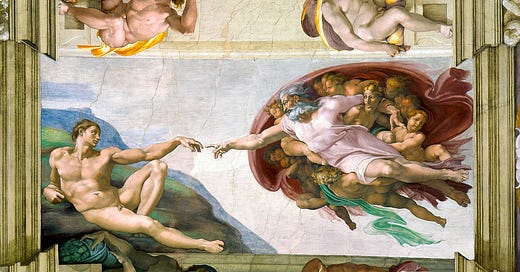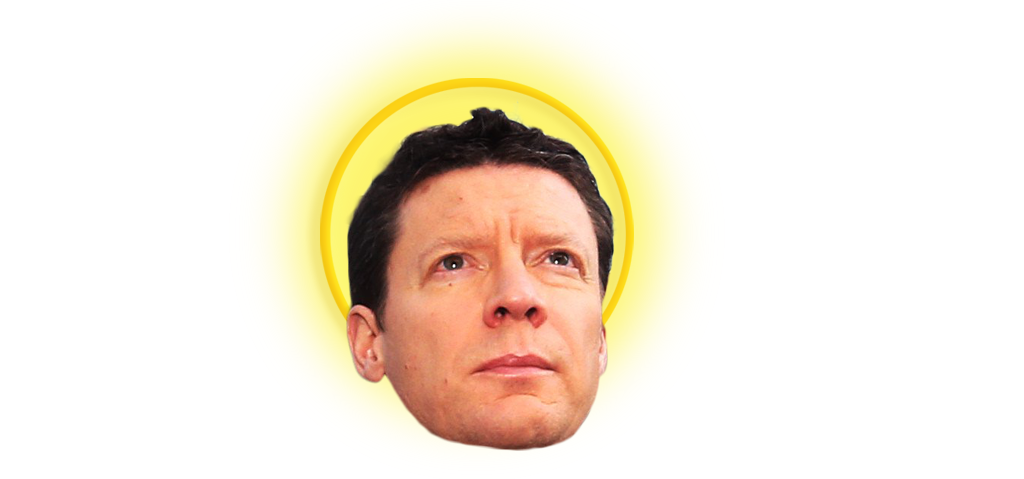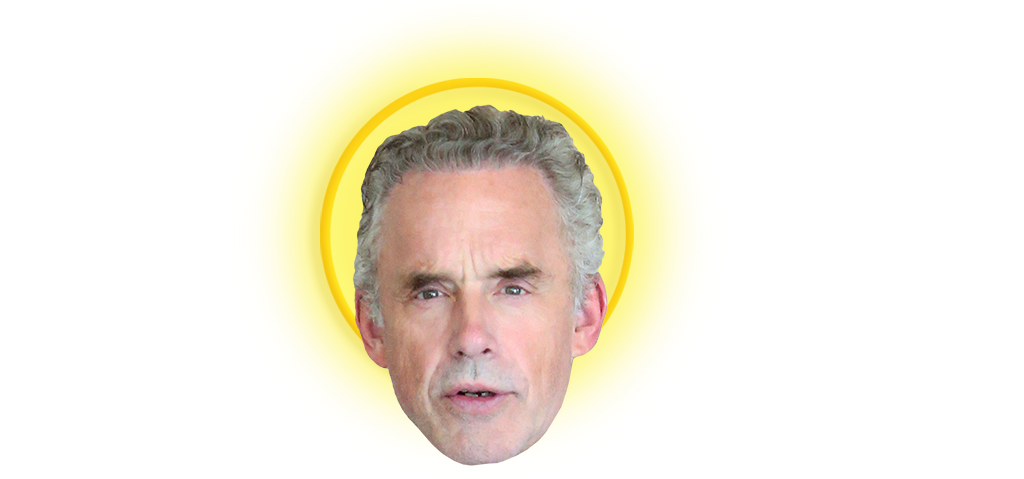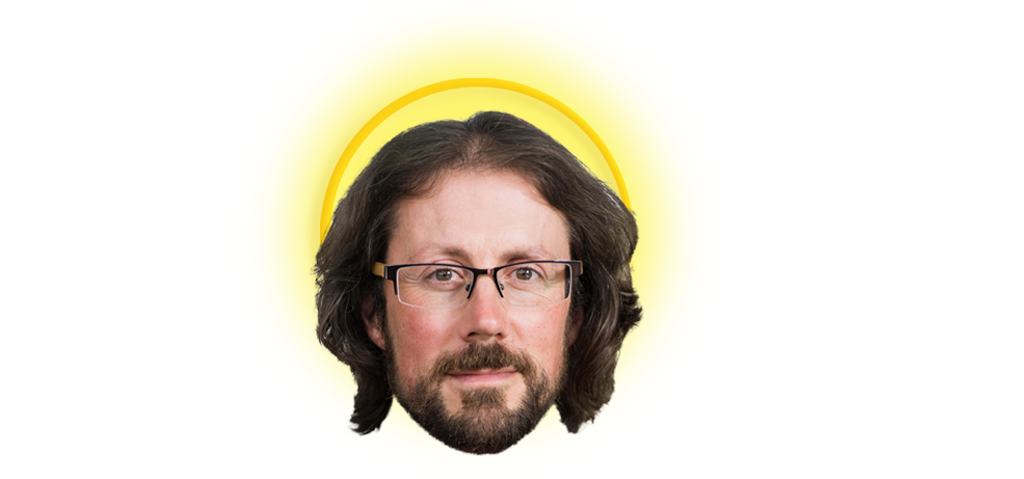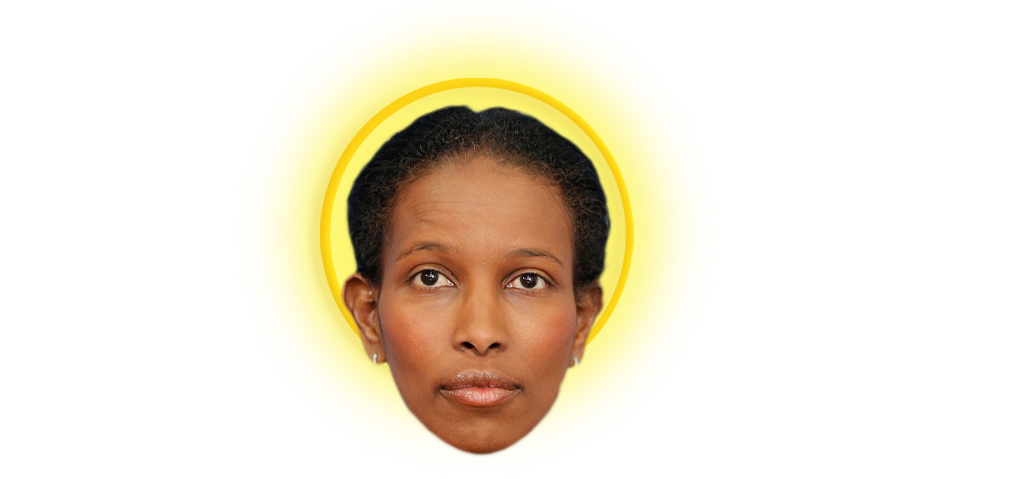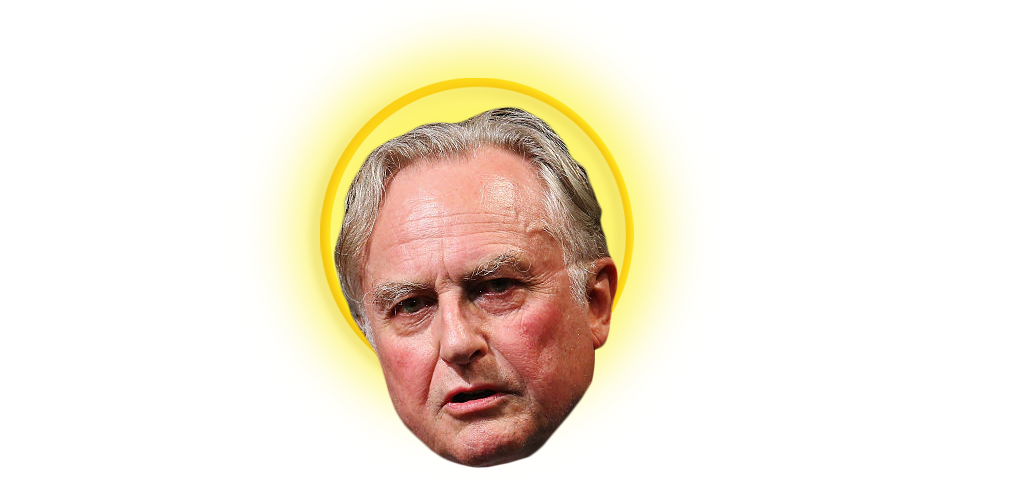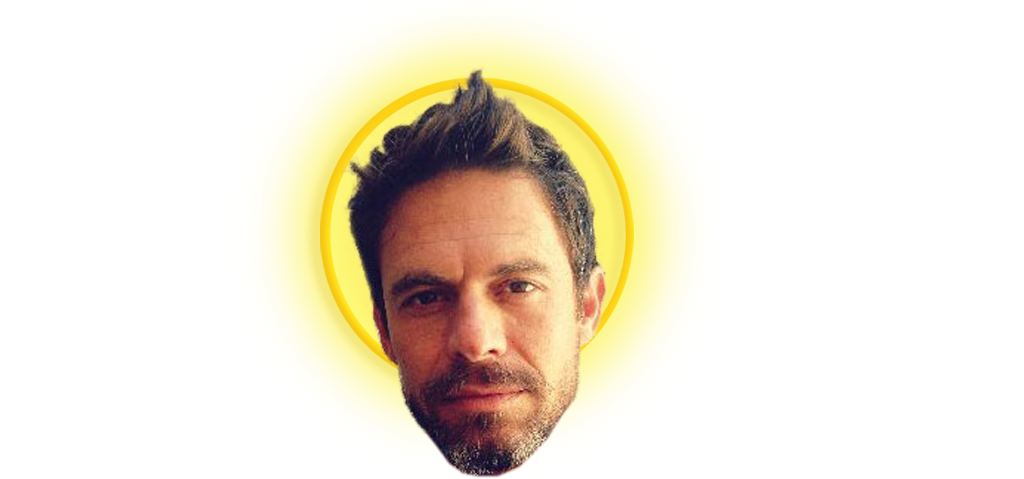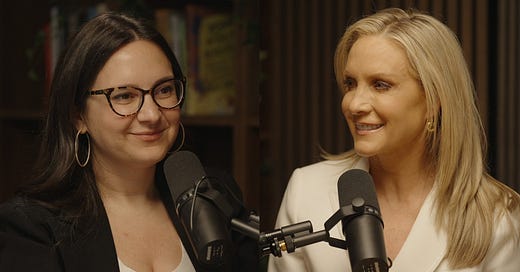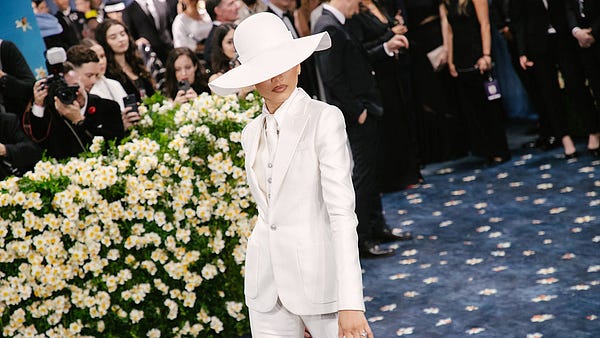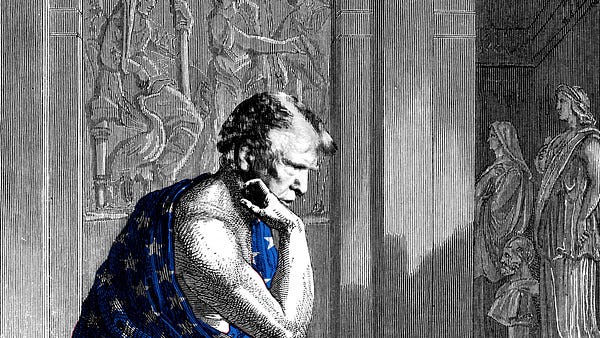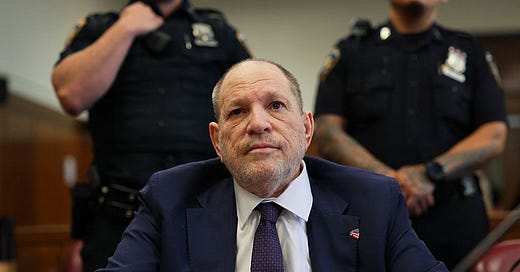
The Free Press
In the beginning, Matthew Crawford believed in nothing.
“The question of God wasn’t even on the radar,” the best-selling author told me.
He was 8 when his parents split, and he followed his mother to a Hindu ashram in Oakland, California. There were trips to India; upstate New York; Miami Beach, Florida; Santa Monica, California. It never stuck.
Like his mother, Crawford, now 59, was always searching. He felt unsure of who he was or should be—how to be happy, what it meant to be a man.
In the 1990s, he was a graduate student at The University of Chicago, where he studied Greek philosophy and embraced his agnosticism—“the preferred position of modern people,” he said, half-jokingly.
“I was impressed, as a young man, with Nietzsche’s critique of Christianity,” he said. The German philosopher saw religion as little more than a “slave morality”—a crutch for the weak and cowardly.
But then, in 2016, Saint Margaret’s Anglican Church, in Winnipeg, Canada, invited Crawford to give a talk about “the crisis of attention,” the subject of his latest book at the time. That’s when Marilyn Simon, a Shakespeare scholar and a church member, came into his life.
It was, he said, “the classic story you hear of conversion.”
Simon was smart and striking, Crawford said, and she was “overflowing with a kind of generous strength.” The source of that strength was her faith.
Suddenly, in this lovely, faraway church—festooned with stained-glass windows and mahogany pews and a baby grand piano and crosses dedicated to the memory of those congregants killed in the world wars—Crawford could glimpse a new future. One that included Simon. And, maybe, God.
Finally, late last year, Crawford converted to the Anglican Church. Then, in June, Crawford and Simon were married at Saint Margaret’s.
“I liken it sometimes to a psychedelic experience,” Crawford said. “You feel like you’ve gained access to some layer of reality, but you just weren’t seeing it.” He meant God, but he also seemed to be talking about his wife.
“A lot of very thoughtful people who once believed reason and science could explain everything—why we’re here, what comes after we’re gone, what it all means—are now feeling a genuine hunger for something more,” he said.
“There has to be a larger order that comprehends us and makes a demand on us,” Crawford added. “It’s clear that we can’t live without a sense of meaning beyond ourselves.”
Had Crawford heard himself saying these things in 1996, when he was still a graduate student, he would have been mystified. That was the year that evolutionary biologist Richard Dawkins, speaking at an American Humanist Association conference, declared: “I think a case can be made that faith is one of the world’s great evils, comparable to the smallpox virus but harder to eradicate.”
But something profound is happening. Instead of smirking at religion, some of our most important philosophers, novelists, and public intellectuals are now reassessing their contempt for it. They are wondering if they might have missed something. Religion, the historian Niall Ferguson told me, “provides ethical immunity to the false religions of Lenin and Hitler.”
There is something inevitable about this reassessment, Jonathan Haidt, the prominent New York University psychologist and best-selling author, told me. (Haidt’s books include The Righteous Mind: Why Good People Are Divided by Politics and Religion.) “There is a God-shaped hole in every human heart, and I believe it was put there by evolution,” he said. He was alluding to the seventeenth-century French philosopher Blaise Pascal, who wrote extensively on the nature of faith.
“We evolved in a long period of group versus group conflict and violence, and we evolved a capacity to make a sacred circle and then bind ourselves to others in a way that creates a strong community,” Haidt told me.
Ferguson added that “you can’t organize a society on the basis of atheism.”
“It’s fine for a small group of people to say, ‘We’re atheist, we’re opting out,’ ” he said, “but, in effect, that depends on everyone else carrying on. If everyone else says, ‘We’re out,’ then you quickly descend into a maelstrom like Raskolnikov’s nightmare”—in which Rodion Raskolnikov, the protagonist of Fyodor Dostoevsky’s Crime and Punishment, envisions a world consumed by nihilism and atomism tearing itself apart. “The fascinating thing about the nightmare is that it reads, to anyone who has been through the twentieth century, like a kind of prophecy.”
The Rise and Fall of the New Atheists
For more than a century, the people at the apex of the so-called thinking classes had insisted that, post-Enlightenment, it was impossible to believe in God. Not all of them put it as bluntly as Friedrich Nietzsche did in his 1882 work The Gay Science, in which he declared that “God is dead.” Nor did they attempt to dismantle the whole religious project the way philosopher Bertrand Russell did in his 1927 essay “Why I Am Not a Christian,” arguing that religion is based “mainly upon fear.”
But that’s what it amounted to.
The new godlessness anticipated a much wider rejection of faith: Over the course of the next several decades, the number of believers plummeted across the West. In 1999, 70 percent of Americans said they belonged to a house of worship; by 2020, that figure was just 47 percent—less than half the country for the first time. Meanwhile, the percentage of Americans identifying as Christian has dropped off—from a peak of roughly 90 percent in the early 1970s to 63 percent in 2022. By 2070, Christians are expected to be in the minority in the United States. A majority will comprise people of other faiths and, to a much greater extent, “nones,” meaning those who have no faith at all.
The September 11, 2001 terrorist attacks only seemed to validate the turn against religion—pitting the secularizing West against radical Islamists whose fervor stretched back to the Middle Ages. As the British intellectual and prominent atheist Christopher Hitchens said, the attacks left him feeling not only furious and sad, but “exhilarated.”
“I thought, ‘Well, here is the enemy in as plain and clear a view as it could possibly be: theocratic fascism, disclosed in its most horrific form,’ ” Hitchens said, not long after the attack.
In 2007, Hitchens hosted a conversation about atheism at his Washington, D.C., home with three other prominent nonbelievers: Dawkins, the philosopher Daniel Dennett, and the writer and neuroscientist Sam Harris. They filmed themselves discussing their many objections to religion and the criticisms, often barbed, lodged against them for making those objections.
Their discussion went viral. Harris later wrote a book about it, The Four Horsemen: The Conversation that Sparked an Atheist Revolution. Not believing in God was no longer just fashionable. It was, for those on campus, for best-selling authors, for those who dominated our most rarefied intellectual spaces, the only rational position worth having.
The new atheism coincided, not coincidentally, with the rise of the internet—the apotheosis of our emerging hyper-scientific, hyperrational moment, one in which every problem could be solved, every hurdle could be overcome, every disease cured. It was only a matter of the right pitch deck and enough seed capital. “People are looking for new gods, to use a phrase of Heidegger’s, and, given our technological fetish, it would make sense if these new gods showed up as a kind of new tech,” Crawford said. “You get the gods you’re looking for.”
Now, 17 years after the four horsemen first met, Hitchens is dead. So is Dennett. Harris remains an atheist. “I don’t know if it’s a real trend,” Harris told me in an email about our current religious awakening. “Call me when people start believing in Poseidon.”
I don’t know about that, but I can tell you that the tech geniuses and media personalities and celebrities who once embodied the new atheism are rethinking what we lose when we lose religion.
Some evidence of that from just this past year:
In February 2024, podcaster Joe Rogan, in a conversation about the sorry state of America’s youth with New York Jets quarterback Aaron Rodgers, said: “We need Jesus.” Not five years earlier, Rogan had hosted Richard Dawkins on his show and poked fun at Christians.
In April, the comedian Russell Brand—who has emerged in recent years as a voice of the counterculture and amassed an audience of more than 11 million on X—announced that he was about to be baptized. “I know a lot of people are cynical about the increasing interest in Christianity and the return to God but, to me, it’s obvious. As meaning deteriorates in the modern world, as our value systems and institutions crumble, all of us become increasingly aware that there is this eerily familiar awakening and beckoning figure that we’ve all known all our lives within us and around us. For me, it’s very exciting.”
In May, tech mogul Peter Thiel, who had espoused a vague spirituality and had been friends with the late French philosopher and religious thinker René Girard, came down unequivocally on the side of God. “God has some kind of a plan for history,” Thiel said, while being interviewed by a pastor at a former church. “Maybe it’s a hidden plan; it’s a secret plan. He has a plan for your life.” It was a remarkable moment: One of the gods of Silicon Valley, who had long argued that technology could cure death, was now saying that there was one true God, and that human beings were human—limited, mortal, at the mercy of larger forces.
Then in July, Elon Musk—the former “atheist hero,” the king of electric vehicles and space exploration, the champion of free expression—sat down with Jordan Peterson, the Canadian psychologist who has studied the intersection of religion and ideology, to discuss God. “I’m actually a big believer in the principles of Christianity,” Musk said. Soon after, Musk took to X to pronounce that “unless there is more bravery to stand up for what is fair and right, Christianity will perish.”
Then, last month, Peterson’s book We Who Wrestle with God: Perceptions of the Divine was published. Peterson had always avoided saying whether he believed in a higher power. Now, sporting a jacket emblazoned with the Calvary cross, he was pushing back against the new atheists. “I would say God is hyper-real,” Peterson said in a recent interview with Ben Shapiro promoting the book. “God is the reality upon which all reality depends.”
The question swirling around all the new believers was: Were they true believers? Or was their conversion mostly or entirely utilitarian—driven by a desire to push back against the forces of technology and secularism and wokeness and an increasingly militant Islam? Did they actually believe that Jesus Christ was the son of God and that he had died for our sins and was resurrected? Or did they think that was a nice story that we should tell ourselves because it encouraged people to treat each other better—because it was a kind of cultural bulwark? And did it really matter in the end?
Andrew Sullivan, the writer and podcaster, suggested this might not be easy to answer. “The feeling”—of believing—“will vary,” Sullivan, a Catholic, told me. “Sometimes, there’s no feeling. Sometimes, you’re overwhelmed. The point really is to escape feeling as such—our emotions are not what prove anything.”
“The genius of ritual is that it allows us not to articulate our feelings,” Sullivan said. “It allows us to express our faith through an act.”
Paul Kingsnorth: The True Believer
In the ’80s, when he was a kid, Paul Kingsnorth used to take long walks on the trails that cut through the mountains of Wales and Scotland and the south of England. That was when he fell in love with nature—the sloping vistas, the undulating patches of dark green and gold and chestnut and amber. The woodlands, the waterways, the air, the mist.
“My dad got really obsessed with those trails when I was young, and he used to take me out for long periods,” Kingsnorth, 52, told me.
He wasn’t religious then, but “I had a very religious attitude to nature when I look back on it,” he said. “Nature was God, and nature had to be worshipped.”
In retrospect, “I see a religious impulse that was not quite directed in the right direction—it was directed toward creation rather than the creator.”
He studied history at Oxford, and then he ping-ponged around the worlds of journalism and environmental activism. His love of nature “was very genuine,” he said, “but it never quite fulfilled me the right way.”
In 2009, Kingsnorth co-founded The Dark Mountain Project. The goal was to create an environmental journalism that reported on the natural world but without the alarmism that has gripped much of the movement. Five years later, Kingsnorth and his wife, who is a Sikh, moved to County Galway, on the west coast of Ireland. They wanted to homeschool their kids, to live off the land.
They found a small house on a two-and-a-half-acre plot. “We have a well, and we grow our own firewood, and we have chickens and ducks,” he said. “We have a whole poultry situation that my daughter tends to manage. She’s the poultry girl.”
It was also part of a bigger, spiritual migration. At first, Kingsnorth was a Zen Buddhist. Then he was a “neopagan.” Then he discovered a Romanian Orthodox monastery 40 minutes away from their little house in the country. “That was the end point of a long process of spiritual journeying,” he said.
It was not surprising, looking back, that he had found his way to Orthodoxy, which had a way of connecting the natural and the divine. Our political and technological crises, Kingsnorth said in a 2023 conversation with the American conservative writer Rod Dreher, stemmed from “a loss of connection to the earth. You’re not going to get that in the Church of England. But you do get it in the Orthodox faith, interestingly. It’s not earth-worshipping, but it fills in what’s lacking in Western Christianity: the mysticism.”
In January 2021, he was baptised at the monastery, in the River Shannon. “My family were all with me, and it was deeply transformative,” Kingsnorth told me. Since then, he has become one of the most important and thoughtful voices of the newly converted—the new theists, if you will. His Substack newsletter, The Abbey of Misrule, with 64,000 readers, has become something of a go-to for this nascent but rapidly growing community of seekers.
When I asked Kingsnorth why he embraced Christianity after having steered clear of it for his entire life, he said it wasn’t a “rational choice.”
“If you ever meet a holy person, you look at them and you think, Wow, that’s really something—you know, I would love to be like that,” he said. “How does that happen?”
“The culture,” by contrast, “doesn’t have any spiritual heart at all. It’s as if we think we can just junk thousands of years of religious culture, religious art, religious music, chuck it all out the window, and we’re just building and creating junk.”
He said the story we’ve been telling ourselves for the last 100 years or so, of endless progress and secularism and the triumph of reason, is now “at some kind of tipping point.” Our great “religious reawakening” is just people “finding their way back to something that they never expected to find their way back to.”
Ayaan Hirsi Ali: From Infidel to Reluctant Christian
If anyone had a reason to hate religion, it was Ayaan Hirsi Ali.
She was born into a Muslim family in Somalia in 1969, the year the communists came to power, and she was 5 when her grandmother and two of her grandmother’s friends held her down so a man, wielding scissors, could remove her clitoris and inner labia—“like a butcher snipping fat off a piece of meat,” she later recalled.
When she was in her early twenties, she fled to the Netherlands, where she gained political refugee status and eventually won a seat in parliament.
There, she embraced Dutch liberal secular culture. She became an atheist—and a fervent critic of Islam. In 2004, her friend, the director Theo van Gogh, was murdered in the middle of Amsterdam for making the movie Submission, co-written by Hirsi Ali, about Muslim misogyny. A note was pinned to his body with a knife saying Hirsi Ali would be next.
In 2006, she shared her story in her best-selling memoir Infidel. Her detractors called her an Islamophobe, but she carried on, and wrote more books. Then, in 2011, Hirsi Ali married Niall Ferguson. They had two boys.
But Hirsi Ali, 55, was tormented by her past. She battled depression.
“I did it with alcohol,” she told me. ”I tried to get rid of that nagging void.” She saw one psychiatrist after another, and “they would prescribe me drugs, and I would faithfully take them, expecting to be better. And I wasn’t.”
“I thought we were done,” Ferguson told me. “I thought she was going to die. I’d almost completely despaired of finding a way out, all the accumulated traumas of her life.”
Hirsi Ali recalled a conversation she had with the British philosopher Roger Scruton shortly before he died in 2020. “I was telling him about my depression,” Hirsi Ali said of Scruton, who belonged to the Church of England, “and he said, ‘If you don’t believe in God, at least believe in beauty.’ ” Mozart, opera, church hymns—they were a way out of the dark, she said. She couldn’t help but be moved by something Scruton said: “The greatest works of art have been inspired by some connection to God.”
In 2022, she started to come around to the idea of Christianity, going to church, thinking, reading: Who was this Christian God? And what was the nature of one’s relationship with him? How did that change you?
Then came Hamas’s attack on Israel on October 7, 2023.
The attack was proof, like the September 11, 2001 attacks in the United States, of everything she had long believed about Islam. She was horrified, but she was also amazed by the Israelis’ conviction. “What I find with my Jewish friends was this blind faith in Israel and the existence of Israel—there will be a Zionist movement, there will be a home for the Jewish people,” she said. “They are immersed in these biblical stories. It’s a story of faith.”
In November of that year, Hirsi Ali published an essay, “Why I Am Now a Christian”—a response to Bertrand Russell—in UnHerd. “We can’t counter Islamism with purely secular tools,” she wrote. “To win the hearts and minds of Muslims here in the West, we have to offer them something more than videos on TikTok.”
The essay triggered an avalanche of conversations in the independent media universe—including a book, which she is now working on, and a debate, in June, between Hirsi Ali and Dawkins in which she argued that Christianity is a bulwark against “the cult of power, Islamism.” The debate felt like a kind of bookend to the four horsemen meeting in Hitchens’s apartment in 2007.
“It’s been a year, 15 months”—since embracing her new faith—“and I still feel almost miraculous,” Hirsi Ali told me.
On September 1, Hirsi Ali and Ferguson and their sons were baptized. “I had a spiritual void in my life, and Ayaan certainly did,” Ferguson said. “Her discovery of a Christian God saved her.”
When I asked Hirsi Ali and Ferguson whether their faith was real or just a political balm meant to combat the “cult of power”—whether they were, as Dawkins said, “theological Christians” or a “cultural” ones—they said their faith was “genuine.”
“You cannot help but feel restored by a church service,” Ferguson said. Then, referring to the nineteenth-century French writer Alexis de Tocqueville, who viewed religion as politically useful, he added: “The cynical Tocquevillian Niall who thought church was a useful thing has given way to somebody who looks forward to going to church.”
Hirsi Ali added: “I’m actually very grateful for whatever it was that was ailing me,” because it led her to God. “My life now is much richer, more fulfilling, than before.”
She wondered: “What does Dawkins say to that?”
Richard Dawkins: ‘Cultural Christian’
Richard Dawkins, 83, was flabbergasted by Hirsi Ali’s turn to God, which he acknowledged in an open letter that he posted on his Substack five days after her essay was published.
When we spoke—via Zoom, Dawkins in a brightly lit room at home in Oxford, England—he was a tad irritable. He was in a navy blazer, and there was a wall of books behind him, and he seemed a little exasperated with all the God talk.
Dawkins had created a furor when, in the midst of the often violent, pro-Hamas demonstrations in London and New York and elsewhere, he appeared on a British radio program and called himself a “cultural Christian.” He went on to say, “I sort of feel at home in the Christian ethos, I feel that we are a Christian country in that sense.”
“I rather regret” having said all that now, he told me.
Dawkins underscored that he, like Sam Harris, is still very much an atheist. He did not see any contradiction in saying, as he had to Rachel Johnson on the Leading Britain’s Conversation (LBC) radio show, that he was “happy” with the number of Christians declining in Britain and that he “would not be happy if we lost all our cathedrals and our beautiful parish churches.”
“The tendency you’re talking about,” he told me, alluding to Hirsi Ali, “is, I think, mostly people who don’t necessarily believe Jesus was the son of God or born of a virgin, or rose from the dead, but nevertheless think that Christianity is a good thing, that Christianity would benefit the world if more people believed it, that Christianity might be the sort of basis for a lot of what’s good about Western civilization.”
And yet, Dawkins did admit he was worried about losing the world that had been bequeathed to us by Christianity. “If we substituted any alternative religion,” he said in his April interview, “that would be truly dreadful.”
It wasn’t just about the danger of what was coming. It was about what we were losing, or might lose.
“Some of the greatest music ever written is church music, music inspired by Christianity,” he told me, echoing Roger Scruton. J.S. Bach would never have composed his Mass in B Minor—with all those violins, cellos, sopranos, and tenors weaving together, pointing us toward the heavens—without the divine, he said. Nor would Dostoevsky, as Paul Kingsnorth said, have written The Brothers Karamazov had he not been a believer. Had the world not been changed in countless unbelievable ways by that art? Had that art not changed us?
When I mentioned Dawkins’s distinction between cultural and theological Christianity to Kingsnorth, he said he thought Dawkins was deliberately sidestepping a deeper conversation about the nature of belief.
“As far as he’s concerned, it’s just chemicals in the brain,” Kingsnorth said of Dawkins. “But the reason religion persists is people keep having experiences of God, and Dawkins doesn’t seem to want to deal with that.”
Jordan Hall: The New Revivalists
For two decades, Jordan Hall, 52, had been on this hypercharged, neon-lit journey through the whirlwind of Web 1.0: Burning Man, Big Sur, Aspen, private islands, cross-country RV treks, the jungles of southern Ecuador.
He’d made a bundle—he took the video technology company DivX public in 2006—and then he’d retired at the ripe old age of 35.
He had always been looking, wondering what else was out there, never finding The Thing.
Then, in 2022, Hall and his then-girlfriend Vanessa arrived in the green, rambling, rolling Blue Ridge Mountains of westernmost North Carolina. Billy Graham country.
That was where he and Vanessa stumbled on the Swannanoa Christian Church.
Red brick. White steeple. Small congregation with a few hundred souls.
He felt it immediately.
“There was a liveness here,” Hall told me in an even, pensive tenor. “A brightness and a richness—not like the frenetic optimism you’d see in Silicon Valley 10 or 15 years ago, but like a calm, grounded sense of rightness, like everything is stable and good, and moving through life is a thing that can be done by ordinary people even though there are going to be ups and downs, and that’s because you have a community of people who actually care.”
That was when Hall knew his frantic casting about for meaning was finally over. He didn’t expect it. His mother was Jewish; his father, Catholic, but only technically.
The emptiness he’d spent years fleeing was not just his emptiness, as far as he could tell. It was society-wide.
“We’re actually facing a clear and present danger,” Hall said. “It’s cultural termination, and it’s almost certainly going to come to a catastrophic end soon.”
He meant plummeting birth rates, imploding families, relationships that were pale shadows of real relationships—digitized friendship and love as opposed to genuine interactions between people who actually care about and know each other. “The horrifying brokenness of people.”
This brokenness may explain why, for the first time in American history, young men—who have been especially hard hit by the opioid crisis, and are getting fewer college degrees, and finding it harder than ever to land a job—are more religious than young women. A survey of Orthodox churches in the United States, for example, reported a 78 percent rise in converts from 2019 to 2022, with the new male believers outnumbering the female.
It may also explain why so many young people are pushing back against the idea that religion is unfashionable. One of the largest Christian revivals in U.S. history, which happened in 2023, in Wilmore, Kentucky, was led almost entirely by young people. The Latin Catholic Mass is making a return, partly driven by young parishioners craving a greater sense of tradition and ritual. Young Catholic women are donning veils to express their devotion.
Father Jonah Teller, the 36-year-old assistant priest at St. Joseph’s Church in Greenwich Village, a Catholic church a block west of Washington Square, told me he has seen this shift of young people toward God. When he started at the church, in the summer of 2023, his weekly Sunday discussions would attract maybe 20 people, and they would sit in a circle, one row deep. Now, they’re averaging 100 attendees—mostly twenty- or thirtysomethings who had graduated from top-tier colleges and worked on Wall Street—and they’re four rows deep. They serve wine and cheese, usually from Trader Joe’s, and talk about the most important questions: Why are we here? What does it mean to be good? Or to love? Or to know something is true?
He wasn’t sure how the new parishioners had found their way to St. Joseph’s. Word of mouth, friends, friends of friends.
Father Jonah thought that a new fervor, a more authentic connection to the faith, was emerging out of the loneliness of the last few years. There was a “genuine happiness” that he could feel at Mass, “an excitement, a love.”
It wasn’t that complicated in the end. It was, he said, a kind of turning away from a radical atomization. “The world many people have grown up in is one in which you have the ability to be your own God,” said Father Jonah. “You should have it simply because you want it, whatever it may be. Or not have it, and that can include your own existence—a rejection of simply being.”
But the fact of our existence is a testament to God’s love for us, he said. “We are always wanted,” Father Jonah said. “We are always loved. This is the most important thing. God is not a mindfulness hack or a wellness exercise. It’s not—‘I found this ethical system that gets results, and therefore, I will choose it.’ It’s not a choice. It’s an encounter with an actual, personal love.”
Hall acknowledged that accessing that love, incorporating it into one’s life, was a process—shedding the rhythms and mores of secular society, burrowing deep into oneself. “You’re not going to solve anything if you don’t go down deeper,” he told me. “That’s where the heart of the crisis lies.”
For more on this subject, read Paul Kingsnorth on his journey toward God, “The Cross and The Machine,” and Ayaan Hirsi Ali on the larger shift toward religion, “A Christian Revival Is Under Way.”

